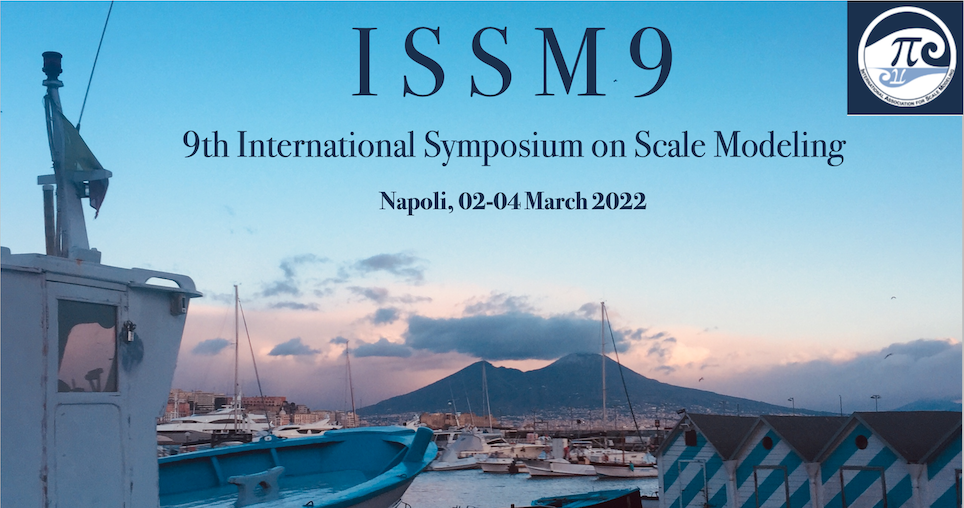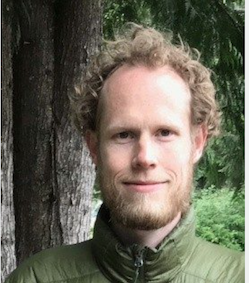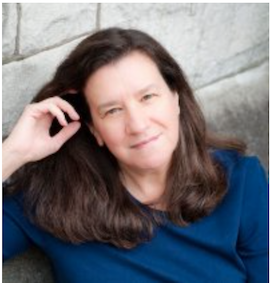
|
|
|
Invited Keynote SpeakersLectures by Keith Davey, Valentin Heller, Mitchell Newberry and Susan G. Sterrett ✮ ✮ ✮ ✮ ✮ Click here for downloading the Abstracts (pdf) ✮ ✮ ✮ ✮ ✮
Keith Davey has degrees in engineering and mathematics, obtained his doctorate in 1989, and joined the University of Manchester (UMIST) as a lecturer in 1990 after lecturing for one year at the University of Sheffield. He has over ten years of industrial experience and prior to becoming an academic, he worked in metal processing and heavy construction industries. He has published some 200 papers, mainly in international conferences and journals. His main areas of research relate to the mathematical modelling of physical phenomena with particular focus on models for advanced processes in areas closely related to solid mechanics. In recognition of his research record of accomplishment and work with industry he is was appointed Editor-in-Chief for the International Journal of Mechanical Sciences and was invited to become: a Visiting Professor at the University of Wolverhampton, a Technical Panel Member of the UK Die Casting Centre, and a member of numerous editorial and scientific conference committees. His industrial-research interests looking into scaled experimentation have recently been supported through the auspices of an EPSRC HVM Fellowship to facilitate collaborative work at the AFRC Catapult in Scotland. He has re-focused his research interests in recent years to explore applications, where transport equations play a significant role in solid mechanics. This includes research on shocks, fracture and moving boundary problems but most notably is his work on scaled experimentation and the discovery of finite similitude. This new concept has lead to publications on scaled experimentation in biomechanics, metal forming, powder processing, impact, damage and fracture mechanics, earthquake engineering, structural dynamics, and presently work is ongoing in the areas of fatigue, electromagnetism, electro-mechanical systems and the application of 3-D printed scaled models in biomechanics. ✮ ✮ ✮ ✮ ✮
Valentin Heller is currently an Assistant Professor in Hydraulics in the Department of Civil Engineering at the University of Nottingham and a member of the Environmental Fluid Mechanics and Geoprocesses research group (www.nottingham.ac.uk/Engineering/People/valentin.heller). Previously, he held one of the prestigious Imperial College London Research Fellowships (2011-2014), worked as a Research Fellow at the University of Southampton (2008-2011) and as a postdoctoral researcher at ETH Zurich (2008). ETH Zurich is also the place where he was awarded his PhD degree for the experimental investigation of landslide-tsunamis. Valentin is mainly active in Experimental and Computational Fluid Dynamics with applications into a wide range of fluid-structure interactions from small to very large scale (www.drvalentinheller.com). He has a keen interest in scale modelling and scale effects and investigated them for a range of applications including landslide-tsunamis, air-water flows, granular slides, wave impact on flexible structures and shallow-water vortices. He published the review articles “Scale effects in physical hydraulic engineering models” (2011) and “Self-similarity and Reynolds number invariance in Froude modelling” (2017) in the Journal of Hydraulic Research (JHR). The former article is currently the most cited article of the JHR with over 400 citations on Google Scholar and received the Harold Jan Schoemaker Award in 2013 as the most outstanding paper published in the JHR in 2011-2012. He currently supervises a Research Fellow and 5 PhD students and was the project leader of an EU funded HYDRALAB+ project. He was the PI of a NERC funded project and worked as a researcher on a range of further research projects. He is an Editor of Landslide (Springer) and an Editorial Board Member of the Journal of Marine Science and Engineering (MDPI) where he run two special issues. He has been a technical reviewer for 40 academic journals and for four research councils. ✮ ✮ ✮ ✮ ✮
Mitchell Newberry develops mathematical and computational theory to understand biological and cultural evolution as Assistant Professor of Complex Systems at University of Michigan and the Michigan Society of Fellows. He has measured self-similarity and scaling relationships in circulatory morphology as well as biological and cultural diversity. He specializes in probability theory and statistical inference and has developed new methods for inferring power law scaling exponents. He has practiced as a professional software engineer and contributed to open source software. He completed a B.S. in Physics at University of Washington, M.S. in Biomathematics at UCLA and PhD in theoretical population genetics at University of Pennsylvania. His research has appeared in Physical Review Letters, PLoS Computational Biology and Nature as well as popular press venues such as The Conversation, Buzzfeed and The Atlantic. ✮ ✮ ✮ ✮ ✮
Susan G Sterrett is the Curtis D Gridley Distinguished Professor of History and Philosophy of Science in the Department of Philosophy at Wichita State University in Wichita, Kansas, USA. She has a B.S. in Engineering Science from CornellUniversity, an M.A. in Mathematics and a M.A. and Ph.D. in Philosophy from the University of Pittsburgh. She taught at Duke University and Carnegie-Mellon University before taking up her current position. Much of her work involves the use of analogy and models in science and the logic of science. She has written on the use of analogy in history of science, including the use ofanalogy in the works of Darwin, Einstein, Wittgenstein, and Turing. Her extensive work on philosophy of models in physics and engineering include "Similarity and Dimensional Analysis", "Experimentation on Analogue Models", "Physically Similar Systems: a history of the concept"; "Relations Between Units and Relations Between Quantities", "Scale Modeling", and "Dimensions." ✮ ✮ ✮ ✮ ✮ |
| Online user: 2 | Privacy |

|



